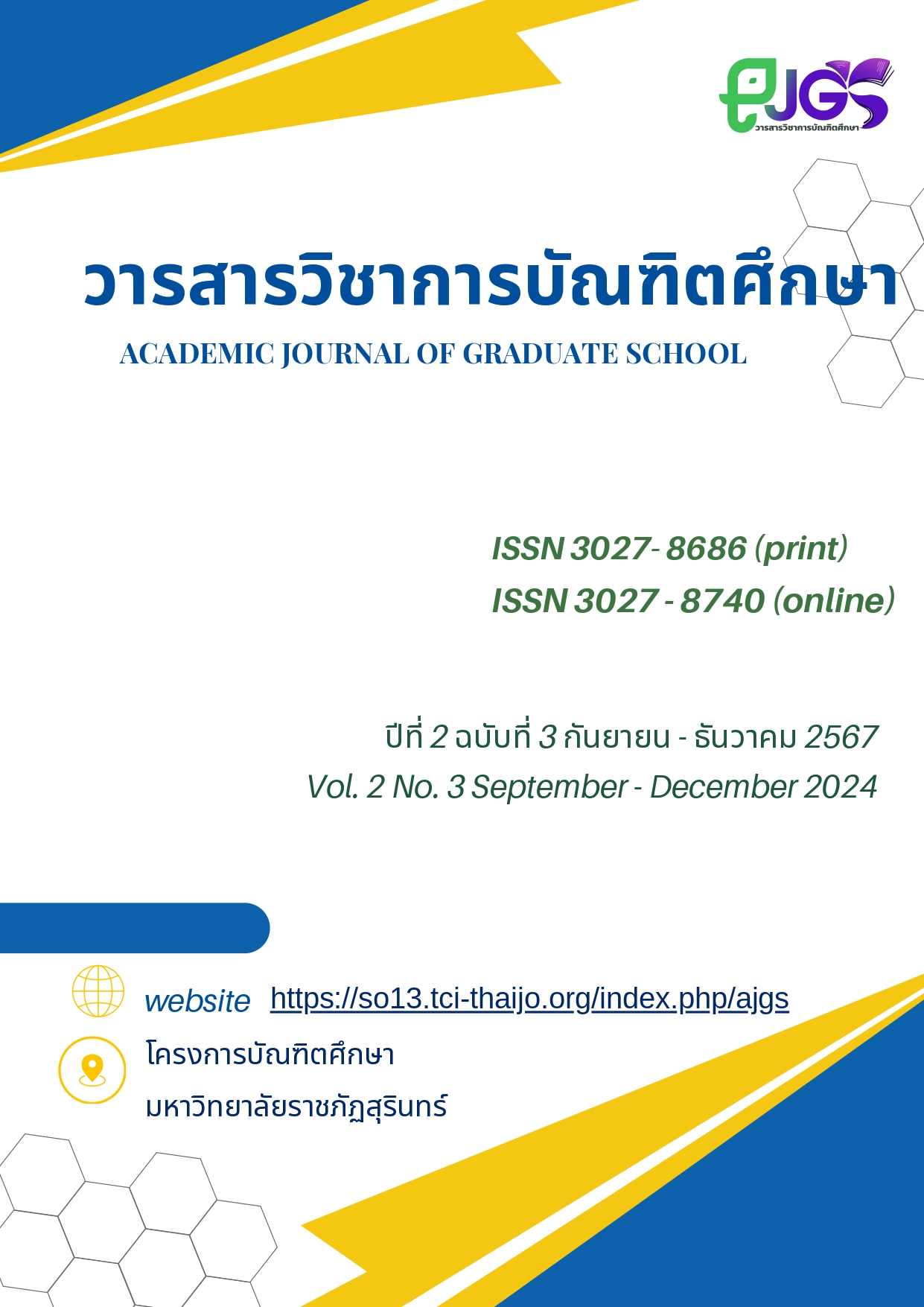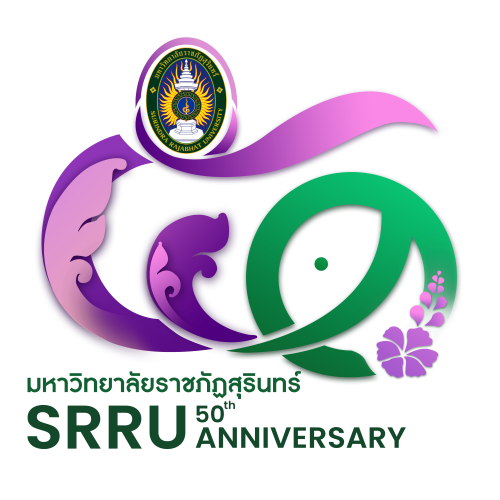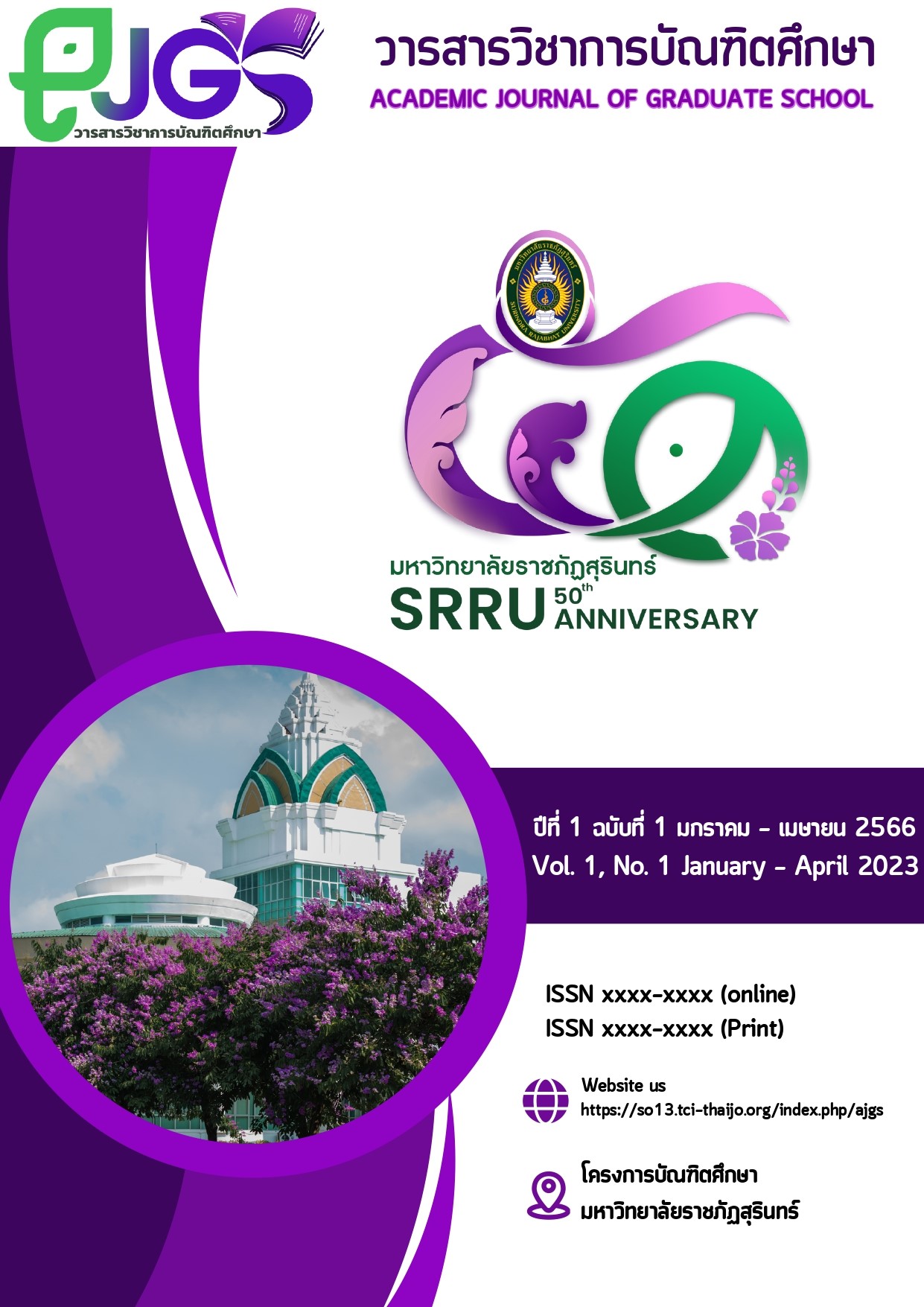การวิเคราะห์เครื่องมือทางรัฐศาสตร์
DOI:
https://doi.org/10.65205/ajgs.2024.1201คำสำคัญ:
เครื่องมือทางรัฐศาสตร์, อำนาจทางการปกครอง, กระบวนการกล่อมเกลาทางสังคม, ผลกระทบทางการเมืองปกครองบทคัดย่อ
นักรัฐศาสตร์ใช้แนวทางและกลยุทธ์ที่หลากหลายเป็นเครื่องมือในการวิเคราะห์และทำความเข้าใจปรากฏการณ์ทางการเมือง ด้วยความช่วยเหลือจากแหล่งข้อมูลเหล่านี้ นักวิชาการสามารถรวบรวมข้อมูลที่เป็นข้อเท็จจริง นำทฤษฎีมาทดสอบ และสร้างข้อมูลเชิงลึกเกี่ยวกับกระบวนการและระบบทางการเมือง นักวิจัยสามารถจัดการกับปัญหาสังคมที่ยากลำบาก มีส่วนร่วมในการตัดสินใจเชิงนโยบาย และส่งเสริมวัตถุประสงค์ของความยุติธรรมทางสังคมและการปกครองแบบประชาธิปไตยโดยใช้เครื่องมือทางรัฐศาสตร์ ดังนั้นการศึกษาครั้งนี้มีวัตถุประสงค์เพื่อการวิเคราะห์เครื่องมือทางรัฐศาสตร์ การศึกษาครั้งนี้ดำเนินการตามรากฐานด้านระเบียบวิธีของรัฐศาสตร์โดยนำเสนอการวิเคราะห์เชิงลึกเกี่ยวกับกรอบทางทฤษฎีและเครื่องมือด้านระเบียบวิธีของระเบียบวินัย พร้อมด้วยการประเมินข้อดีและข้อเสียอย่างละเอียด โดยการให้ข้อมูลเชิงลึกสำหรับการอภิปรายอย่างต่อเนื่องเกี่ยวกับแนวทางปฏิบัติที่ดีที่สุดและทิศทางในอนาคตในสาขานี้ ผลการวิจัยพบว่าเครื่องมือทางรัฐศาสตร์ประกอบด้วย (1) การได้มาซึ่งอำนาจทางการปกครอง (Acquiring power) (2) การใช้อำนาจทางการปกครอง (Government power Using) (3) กระบวนการกล่อมเกลาทางสังคม (Socialization process) และ (4) ผลกระทบทางการเมืองปกครอง (Impact of politics and government)
เอกสารอ้างอิง
Alford, J. R., Funk, C. L., & Hibbing, J. R. (2005). Are Political Orientations Genetically
Transmitted? American Political Science Review, 99(2) : 153-167.
Almond, G. A., & Verba, S. (1963). The civic culture: Political attitudes and democracy in five
nations. Princeton University Press.
Barak-Erez, D., & Stern, Y. (2016). The protection of socio-economic rights in constitutional
law : Israel in comparative perspective. Oxford University Press.
Bellin, E. (2012). When Is Political Stability Particularistic? Toward a Theory of Inherited Rule.
World Politics, 64(1) : 33-73.
Dahl, R. A. (1971). Polyarchy : Participation and Opposition. Yale University Press.
Dryzek, J. S. (2006). Deliberative global politics : Discourse and democracy in a divided
world. Polity Press.
Giddens, A. (1985). The nation-state and violence. University of California Press.
Ginsberg, B., Lowi, T. J., Weir, M., & Tolbert, C. J. (2019). We the People : An introduction to
American politics (12th ed.). W. W. Norton & Company.
Heywood, A. (2013). Politics (4th ed.). Palgrave Macmillan.
Hill, M., & Hupe, P. (2002). Implementing public policy : Governance in theory and practice.
Sage.
King, G., Keohane, R. O., & Verba, S. (1994). Designing social inquiry: Scientific inference in
qualitative research. Princeton University Press.
Lowi, T. J., Ginsberg, B., Shepsle, K. A., & Ansolabehere, S. (2015). American government:
Power and purpose (14th ed.). W. W. Norton & Company.
Norris, P. (1999). Critical citizens : Global support for democratic governance. Oxford
University Press.
Norris, P. (1999). Critical citizens : Global support for democratic governance. Oxford
University Press.
Price, R. M. (2007). Gods and Kings : The Rise and Fall of Alexander McQueen and John
Galliano. New York : Bloomsbury.
Rose-Ackerman, S. (1999). Corruption and government : Causes, consequences, and reform.
Cambridge University Press.
Rosenbloom, D. H., Kravchuk, R. S., & Clerkin, R. M. (2015). Public administration:
Understanding management, politics, and law in the public sector (9th ed.).
McGraw-Hill Education.
Skocpol, T. (1979). States and Social Revolutions : A Comparative Analysis of France, Russia,
and China. Cambridge University Press.
Stiglitz, J. E. (2019). People, power, and profits : Progressive capitalism for an age of
discontent. W. W. Norton & Company.
Tilly, C., & Wood, L. J. (2009). Social movements, 1768-2008. Paradigm Publishers.
Weber, M. (1978). Economy and society: An outline of interpretive sociology. University of
California Press.
Weimer, D. L., & Vining, A. R. (2017). Policy analysis : Concepts and practice. Routledge.
ดาวน์โหลด
เผยแพร่แล้ว
รูปแบบการอ้างอิง
ฉบับ
ประเภทบทความ
สัญญาอนุญาต

อนุญาตภายใต้เงื่อนไข Creative Commons Attribution-NonCommercial-NoDerivatives 4.0 International License.
























